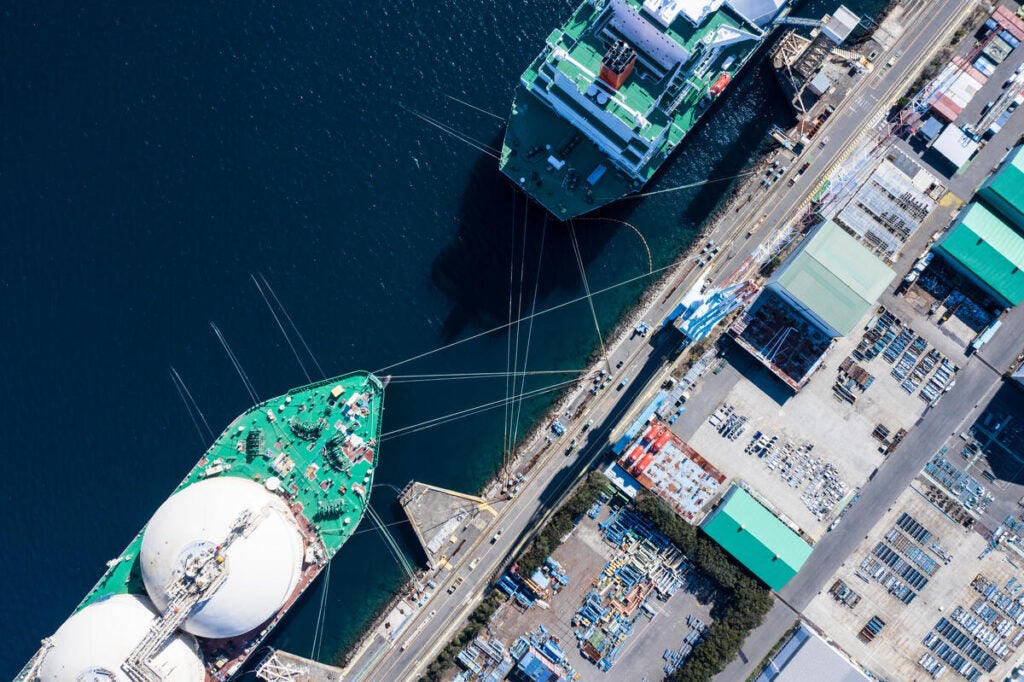By EDF Blogs

By Hiro Shirakawa
As one of the world’s top five importers and financiers of oil and natural gas, Japan is uniquely positioned to influence methane emissions along the supply chain.
Though Japan has been recognized for the climate-action leverage it can exert as a major global buyer of liquefied natural gas, a new Deloitte report commissioned by Environmental Defense Fund highlights an equally powerful tool: Japan’s substantial financial investments in oil- and gas-producing companies abroad.
Changing industry from the demand side
Japan relies heavily on imported fossil fuels to power the world’s third-largest economy. Fossil fuels account for nearly 85% of Japan’s energy consumption, and 98% of the supply comes from imports.
This significant buying power provides the country with opportunities to seek imported fuel with lower methane emissions, a super-charged climate pollutant that could emit throughout the oil and gas supply chain.
Financing Provides Japan Another Lever to Reduce Global Oil & Gas Industry Emissions
Share on X
Japan has started to exercise its purchasing power to cut its methane footprints beyond its borders. Launched by Japan and South Korea in 2023, the Coalition for LNG Emission Abatement toward Net-Zero, or CLEAN works with producers to curb methane emissions throughout the LNG supply chain by improving data transparency and measurement, and reporting and verification . Japan has made similar commitments with the EU and the International Group of LNG Importers, or GIIGNL, and is working directly with Petronas, Malaysia’s national oil company and Woodside Energy, Australia’s largest independent gas producer, to advance methane detection technology. All of these demand-side efforts demonstrate Japan’s commitment to collaborate with their suppliers to ultimately reduce the climate impact of their product.
Applying financing influence for deeper cuts
Deloitte’s new report examines how Japan’s investments in energy companies abroad can spur change from the supply side.
In 2021, Japanese banks financed $70 billion in oil and gas projects abroad, a large portion of which is in upstream production where methane mitigation can reap significant climate benefits. That sum represents nearly 9% of all global investments in the oil and gas sector that year. Furthermore, the outstanding credit of Japan’s three megabanks (MUFG, SMBC and MHFG) in the oil and gas sector outside the country exceeded $100 billion, bringing the total credits extended by the entire Japanese banking industry in the sector to $200 billion, based on estimates as of the end of 2023.
Japan’s financial institutions, especially the three megabanks , have publicly committed to achieving net-zero emissions across their investment portfolios by 2050. This is a commendable first step, but they have yet to define specific methane reduction targets to guide companies on funder expectations, missing an important opportunity to leverage one of the fastest and most cost-effective tools to cut climate pollution. Moreover, direct emission measurements have revealed the oil and gas industry significantly underreports their emissions. As governments and the public increasingly demand the disclosure of empirical data and tightening of regulations, financiers of the oil and gas industry could suffer material risks to their climate transition, investment and reputation.
In this area, there are ready partners. Japanese financial institutions can play a pivotal role by supporting government methane policies, investing in methane science studies and technology development, and collaborating with peer international investors to advance the methane reduction agenda. By aligning with these strategic goals, Japan’s financing sector can directly influence methane mitigation efforts, setting a standard that drives real change across the oil and gas industry.
Cross-Sector and International Collaboration will Drive Results
Similarly, financial institutions can also play a pivotal role by encouraging more oil and gas companies to join initiatives like the Oil and Gas Methane Partnership 2.0 and Oil and Gas Decarbonization Charter, demanding data disclosure and transparency and holding member companies accountable to their climate commitments. By leveraging these frameworks, banks can help align their financing with methane-specific emissions goals and ensure their investments drive measurable climate progress.
Key to both efforts is reliable and transparent data collection and reporting, both critical ingredients to a robust and comprehensive financial assessment of the industry’s methane performance.
A new framework developed by the International Energy Agency, The UN’s International Methane Emissions Observatory and Environmental Defense Fund will track the emission-reduction progress of oil and gas operators toward the targets set out in the OGDC. The new emission tracking satellite MethaneSAT will provide unprecedented transparency into oil and gas production emissions around the world and help companies and governments devise target emission reduction efforts and track their progress. Japanese banks can leverage these initiatives to ensure financed projects adhere to rigorous standards and advance decarbonization goals.
A path to methane leadership
The tools and levers are in place for Japan’s financial sector to lead on global methane reduction. Applying them is the sector’s next important step.
- Financiers can set methane targets for 2030 and 2050, which will provide clear guidance of their expectations of their oil and gas sector investments.
- Encouraging their clients to join OGMP 2.0 will demonstrate clear support for the need for methane action and a transparent and trustworthy emission reporting framework. Vocal support of OGMP and strong methane policies will underscore this commitment.
- Integrating methane performance in their investment evaluations will demonstrate the sector’s long-term commitment to methane action.
- Investing in methane monitoring and measurement technologies to advance transparency and broaden the sector’s growth opportunities.
Aligning financing with Japan’s climate goals
Aligning financing with Japan’s climate goals and global decarbonization efforts will allow Japanese banks and financial institutions to future-proof their portfolios and set the pace for methane mitigation efforts worldwide. The key question now is not how or whether they should act, but how quickly they can capitalize on these opportunities and meet the challenges ahead.
The post Financing provides Japan another lever to reduce global oil & gas industry emissions appeared first on Energy Exchange.



